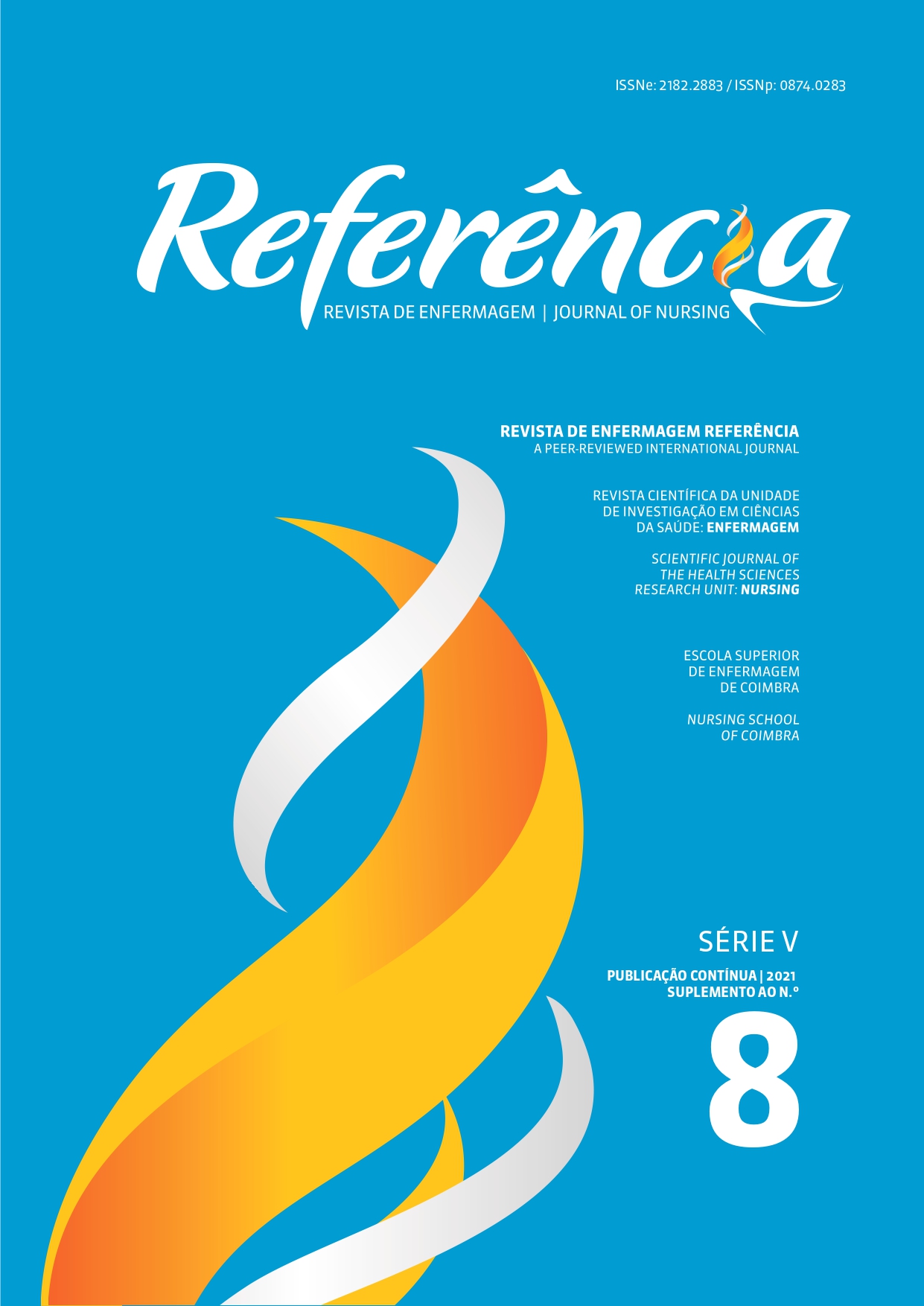Nursing students’ psychological well-being and coping during the COVID-19 quarantine
DOI:
https://doi.org/10.12707/RV20211Keywords:
adaptation, psychological, coronavirus, pandemics, quarantine, students, nursingAbstract
Background: The COVID-19 pandemic crisis has brought about changes in the lives of higher education students that may influence their psychological well-being.
Objective: To analyze the association between nursing students’ coping strategies and their psychological well-being during the COVID-19 quarantine.
Methodology: Cross-sectional, descriptive-correlational study using a convenience sample of 136 students. Data were collected online using the Portuguese version of the Échelle de Mesure des Manifestations du Bien-être Psychologique and the Brief COPE.
Results: Students in the last years of their undergraduate studies used the instrumental support (p = 0.015) and emotional support (p = 0.009) coping strategies more often and had higher levels of psychological well-being (p = 0.012). Psychological well-being is associated with household income changes (p = 0.024), as well as with religion (r = 0.36; p ≤ 0.01), positive reframing (r = 0.47; p ≤ 0.01), and humor (r = 0.37; p ≤ 0.01) coping strategies.
Conclusion: Students’ coping strategies seem to be associated with their psychological well-being during the COVID-19 quarantine.
Downloads
References
Afonso, P. (2020). The Impact of the COVID-19 Pandemic on Mental Health. Acta Medica Portuguesa, 33(5), 356-357. https://doi.org/10.20344/amp.13877
Afonso, P., & Figueira, L. (2020). Pandemia COVID‐19: Quais são os Riscos para a Saude Mental? Revista Portuguesa de Psiquiatria e Saúde Mental, 6(1), 2-3.
Bao, Y., Sun, Y., Meng, S., Shi, J., & Lu, L. (2020). 2019-nCoV epidemic: address mental health care to empower society. The Lancet, 395(10224), e37-e38. https://doi.org/10.1016/s0140-6736(20)30309-3
Brooks, S. K., Webster, R. K., Smith, L. E., Woodland, L., Wessely, S., Greenberg, N., & Rubin, G. J. (2020). The psychological impact of quarantine and how to reduce it: rapid review of the evidence. The Lancet, 395(10227), 912-920. https://doi.org/10.1016/S0140-6736(20)30460-8
Carver, C. S. (1997). You want to measure coping but your protocol’s too long: consider the brief COPE. International Journal of Behavioural Medicine, 4(1), 92-100. https://doi.org/10.1207/s15327558ijbm0401_6.
Ferreira, F., Mota, L., Brito, I., & Santos, M. (2017). Nursing students’ health profile: epidemiological diagnosis based on the PRECEDE-PROCEED model. Revista de Enfermagem Referencia, 4(15), 91-100. https://doi.org/10.12707/riv17047
Huang, L., Lei, W., Xu, F., Liu, H., & Yu, L. (2020). Emotional responses and coping strategies in nurses and nursing students during Covid-19 outbreak: A comparative study. PloS ONE, 15(8), e0237303. https://doi.org/10.1371/journal.pone.0237303
Luz, A., Castro, A., Couto, D., Santos, L., & Pereira, A. (2009). Stress e percepcao do rendimento academico no aluno do ensino superior. Actas do X Congresso Internacional Galego-Português de Psicopedagogia, 4663-4669.
Masse, R., Poulin, C., Dassa, C., Lambert, J., Belair, S., & Battaglini, M. A. (1998). Elaboration et validation d’un outil de mesure du bien-etre psychologique: L’EMMBEP. Canadian Journal of Public Health, 89(5), 352-357. https://doi.org/10.1007/BF03404490
Monteiro, S., Tavares, J., & Pereira, A. (2012). Adaptacao portuguesa da Escala de Medida de Manifestacao de Bem-estar Psicologico com estudantes universitarios- EMMBEP. Psicologia, Saúde & Doenças, 13, 66-77.
Nogueira, M. J., & Sequeira, C. (2020). Preditores de bem-estarpsicologico em estudantes do ensino superior. Revista ROL de Enfermería, 43(1).
Nurunnabi, M., Hossain, S. F. A. H., Chinna, K., Sundarasen, S., Khoshaim, H. B., Kamaludin, K., Baloc, G.M., Sukayt, A., Shan, X. (2020). Coping strategies of students for anxiety during the COVID-19 pandemic in China: a cross-sectional study. F1000Research, 9, 1115. https://doi.org/10.12688/f1000research.25557.1
Pais-Ribeiro, J. L. , & Rodrigues, A. P. (2004). Questoes acerca do coping: a proposito do estudo de adaptacao do Brief COPE. Psicologia, Saude & Doencas, 5, 3-15.
Pestana, C., Goncalves, L., Santos, L., Abreu-Figueiredo, R., Bettencourt, M., & Lourenco, T. (2020). Psychological Impact of COVID-19 Quarantine on Nursing Students in Portugal and Spain. EC Nursing and Healthcare, 2(8), 14-15.
Saez Alvarez, E. J., Lourenco, T., Pestana, C., Charepe, Z., Rabiais, I., & Martinez-Riera, J. (2020). Adaptacion y validacion al espanhol de la escala de Bienestar Psicologico EMMBEP en estudiantes de Enfermeria. Revista ROL de Enfermería, 43(9), 611-618.
Salameh, P., Hajj, A., Badro, D. A., Abou Selwan, C., Aoun, R., & Sacre, H. (2020). Mental Health Outcomes of the COVID-19 Pandemic and a Collapsing Economy: Perspectives from a Developing Country. Psychiatry Research, 294, 113520. https://doi.org/10.1016/j.psychres.2020.113520
Sheroun, D., Wankhar, D. D., Devrani, A., PV, L., Gita, S., & Chatterjee, K. (2020). A study to assess the perceived stress and coping strategies among B.Sc. nursing students of selected colleges in Pune during COVID-19 pandemic lockdown. International Journal of Science and Healthcare Research, 5(2), 280-288.
Silva, O. D. L. d., Caldeira, S. N., Sousa, A., & Mendes, M. (2020). Estrategias de coping e resiliencia em estudantes do Ensino Superior. Revista E-Psi, 9(1), 118-136.
Wu, P., Liu, X., Fang, Y., Fan, B., Fuller, C. J., Guan, Z., Yao, Z., Kong, J., Litvak, I. J. (2008). Alcohol abuse/dependence symptoms among hospital employees exposed to a SARS outbreak. Alcohol and Alcoholism, 43(6), 706-712. https://academic.oup.com/alcalc/article/43/6/706/250093
Zhi, X., Lu, L., Pu, Y., Meng, A., Zhao, Y., Cheng, F., Jiang, J., Xu, J. L., Zeng, Y. (2020). Investigation and analysis of psychological stress and professional identity of nursing students during COVID-19 pandemic. Indian Journal of Experimental Biology, 58.






















